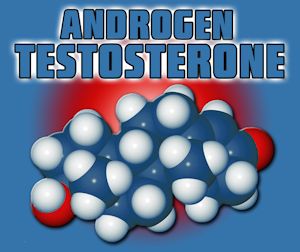Introduction to Testosterone Enanthate
Testosterone Enanthate is a widely recognized anabolic steroid, primarily used for the treatment of hypogonadism in men, a condition characterized by low testosterone levels. This compound, which is a synthetic version of the naturally occurring hormone testosterone, has been extensively studied for its various therapeutic applications. Recent research has begun to explore its potential benefits in the management of hematological disorders among American men, a demographic increasingly affected by such conditions.
Understanding Hematological Disorders
Hematological disorders encompass a broad range of conditions affecting the blood and its components, including anemia, hemophilia, and various types of leukemia. These disorders can significantly impact the quality of life and pose serious health risks. In the United States, men are particularly susceptible to certain types of hematological disorders, making the exploration of new treatment avenues crucial.
The Role of Testosterone in Hematopoiesis
Testosterone plays a pivotal role in hematopoiesis, the process by which the body produces blood cells. It has been observed that testosterone can stimulate the production of erythropoietin, a hormone that promotes the formation of red blood cells. This mechanism is particularly relevant in the context of treating anemia, a common hematological disorder characterized by a deficiency of red blood cells or hemoglobin.
Clinical Evidence Supporting Testosterone Enanthate
Several clinical studies have investigated the effects of testosterone enanthate on hematological parameters. A notable study published in the *Journal of Clinical Endocrinology & Metabolism* demonstrated that testosterone enanthate administration led to significant increases in hemoglobin and hematocrit levels in men with hypogonadism. These findings suggest that testosterone enanthate could be beneficial in managing anemia, especially in cases where low testosterone levels are a contributing factor.
Potential Applications in Other Hematological Disorders
Beyond anemia, testosterone enanthate's role in other hematological disorders is an area of active research. Preliminary studies have indicated that testosterone may have anti-inflammatory and immunomodulatory effects, which could be beneficial in conditions such as myelodysplastic syndromes and certain types of leukemia. However, more comprehensive clinical trials are needed to establish its efficacy and safety in these contexts.
Considerations for American Men
American men, particularly those over the age of 40, are at an increased risk of developing hematological disorders. Factors such as lifestyle, diet, and genetic predisposition can contribute to this risk. The potential use of testosterone enanthate as a therapeutic agent offers a promising avenue for managing these conditions. However, it is essential for healthcare providers to consider the individual health profiles of their patients, including any pre-existing conditions that may be exacerbated by testosterone therapy.
Safety and Side Effects
While testosterone enanthate can offer significant benefits, it is not without potential side effects. These can include acne, hair loss, and increased risk of cardiovascular events. Therefore, careful monitoring and regular follow-ups are crucial when prescribing testosterone enanthate for hematological disorders. Patients should be fully informed about the potential risks and benefits before initiating treatment.
Conclusion: A Promising Horizon
The exploration of testosterone enanthate's potential in treating hematological disorders among American men represents a promising frontier in medical science. As research continues to evolve, it may offer new hope for those affected by these challenging conditions. However, the journey from clinical research to widespread clinical application requires rigorous scientific validation and careful consideration of patient safety.
In summary, testosterone enanthate's role in managing hematological disorders is an exciting area of study that holds significant potential for improving the health outcomes of American men. As the medical community continues to investigate its applications, it is crucial to balance the promise of this therapy with a thorough understanding of its risks and benefits.
Contact Us Today For A Free Consultation

- Testosterone Enanthate: Enhancing Athletic Performance and Associated Risks in the US [Last Updated On: February 18th, 2025] [Originally Added On: February 18th, 2025]
- Long-Term Health Risks of Testosterone Enanthate Use in American Men [Last Updated On: March 17th, 2025] [Originally Added On: March 17th, 2025]
- Testosterone Enanthate: Benefits, Risks, and Management for Low Testosterone Treatment [Last Updated On: March 18th, 2025] [Originally Added On: March 18th, 2025]
- Testosterone Enanthate's Impact on Sleep Quality in American Males: A Comprehensive Analysis [Last Updated On: March 19th, 2025] [Originally Added On: March 19th, 2025]
- Testosterone Enanthate: A Promising Treatment for Sexual Dysfunction in American Males [Last Updated On: March 19th, 2025] [Originally Added On: March 19th, 2025]
- Testosterone Enanthate: Dispelling Myths and Understanding Facts for American Men [Last Updated On: March 19th, 2025] [Originally Added On: March 19th, 2025]
- Testosterone Enanthate: Enhancing Muscle, Reducing Fat for Weight Management in American Men [Last Updated On: March 20th, 2025] [Originally Added On: March 20th, 2025]
- Testosterone Enanthate: A Promising Treatment for Depression in American Men [Last Updated On: March 20th, 2025] [Originally Added On: March 20th, 2025]
- Testosterone Enanthate: Enhancing Cognitive Function in Aging American Men [Last Updated On: March 20th, 2025] [Originally Added On: March 20th, 2025]
- Testosterone Enanthate: Benefits, Prostate Risks, and Monitoring for American Men [Last Updated On: March 20th, 2025] [Originally Added On: March 20th, 2025]
- Testosterone Enanthate: A Promising Therapy for Chronic Pain in American Males [Last Updated On: March 21st, 2025] [Originally Added On: March 21st, 2025]
- Testosterone Enanthate Cycle: Enhancing Performance and Managing Risks in Athletes [Last Updated On: March 21st, 2025] [Originally Added On: March 21st, 2025]
- Testosterone Enanthate: A Promising Treatment for Osteoporosis in American Men [Last Updated On: March 21st, 2025] [Originally Added On: March 21st, 2025]
- Testosterone Enanthate Therapy: Personalization, Monitoring, and Lifestyle Integration for American Men [Last Updated On: March 21st, 2025] [Originally Added On: March 21st, 2025]
- Testosterone Enanthate's Impact on Blood Sugar Levels in American Men: A Review [Last Updated On: March 22nd, 2025] [Originally Added On: March 22nd, 2025]
- Testosterone Enanthate Withdrawal: Symptoms and Management Strategies for American Males [Last Updated On: March 22nd, 2025] [Originally Added On: March 22nd, 2025]
- Testosterone Enanthate's Impact on Male Fertility: Insights for American Patients [Last Updated On: March 23rd, 2025] [Originally Added On: March 23rd, 2025]
- Testosterone Enanthate: A Promising Therapy for Obesity in American Males [Last Updated On: March 23rd, 2025] [Originally Added On: March 23rd, 2025]
- Ethical Dilemmas of Testosterone Enanthate Use Among American Males: A Comprehensive Analysis [Last Updated On: March 23rd, 2025] [Originally Added On: March 23rd, 2025]
- Testosterone Enanthate Therapy: Enhancing Veteran Health and Vitality [Last Updated On: March 23rd, 2025] [Originally Added On: March 23rd, 2025]
- Testosterone Enanthate: Effects on Hair Growth and Loss in American Men [Last Updated On: March 24th, 2025] [Originally Added On: March 24th, 2025]
- Testosterone Enanthate's Impact on Mental Clarity in American Males: Benefits and Risks [Last Updated On: March 24th, 2025] [Originally Added On: March 24th, 2025]
- Testosterone Enanthate's Impact on Appetite and Digestion in American Males [Last Updated On: March 24th, 2025] [Originally Added On: March 24th, 2025]
- Testosterone Enanthate: Enhancing Emotional Well-being in American Males [Last Updated On: March 24th, 2025] [Originally Added On: March 24th, 2025]
- Testosterone Enanthate: A Potential New Treatment for Allergies in American Males [Last Updated On: March 24th, 2025] [Originally Added On: March 24th, 2025]
- Testosterone Enanthate: Enhancing Injury Recovery in American Male Athletes [Last Updated On: March 24th, 2025] [Originally Added On: March 24th, 2025]
- Testosterone Enanthate: Impacts on Joint Health in American Men [Last Updated On: March 25th, 2025] [Originally Added On: March 25th, 2025]
- Testosterone Enanthate: A Promising Treatment for Anemia in Hypogonadal American Men [Last Updated On: March 25th, 2025] [Originally Added On: March 25th, 2025]
- Testosterone Enanthate: Enhancing Immune Function in American Men - Benefits and Risks [Last Updated On: March 25th, 2025] [Originally Added On: March 25th, 2025]
- Testosterone Enanthate's Impact on Cardiovascular Endurance in American Men: Benefits and Risks [Last Updated On: March 25th, 2025] [Originally Added On: March 25th, 2025]
- Testosterone Enanthate: Cultural Perceptions and Masculinity in American Society [Last Updated On: March 25th, 2025] [Originally Added On: March 25th, 2025]
- Testosterone Enanthate: Combating Age-Related Decline in American Men [Last Updated On: March 25th, 2025] [Originally Added On: March 25th, 2025]
- Testosterone Enanthate: A Promising Solution for Muscle Wasting in American Men [Last Updated On: March 25th, 2025] [Originally Added On: March 25th, 2025]
- Testosterone Enanthate Therapy: Benefits, Process, and Risks for Men Over 50 [Last Updated On: March 25th, 2025] [Originally Added On: March 25th, 2025]
- Testosterone Enanthate: A Promising Stress Management Tool for American Men [Last Updated On: March 26th, 2025] [Originally Added On: March 26th, 2025]
- Testosterone Enanthate Boosts Skin Elasticity in American Males: Benefits and Risks [Last Updated On: March 26th, 2025] [Originally Added On: March 26th, 2025]
- Testosterone Enanthate: A Potential Treatment for Chronic Fatigue Syndrome in American Males [Last Updated On: March 26th, 2025] [Originally Added On: March 26th, 2025]
- Testosterone Enanthate: Enhancing Endurance in American Male Athletes - Benefits and Risks [Last Updated On: March 26th, 2025] [Originally Added On: March 26th, 2025]
- Testosterone Enanthate Therapy: Benefits, Limitations, and Management for American Men [Last Updated On: March 26th, 2025] [Originally Added On: March 26th, 2025]
- Testosterone Enanthate: Enhancing Muscle, Reducing Fat, Boosting Performance in American Males [Last Updated On: March 26th, 2025] [Originally Added On: March 26th, 2025]
- Testosterone Enanthate's Impact on Dental Health in American Males: Risks and Recommendations [Last Updated On: March 27th, 2025] [Originally Added On: March 27th, 2025]
- Testosterone Enanthate's Impact on Vision and Eye Health in American Males [Last Updated On: March 27th, 2025] [Originally Added On: March 27th, 2025]
- Testosterone Enanthate: Benefits, Costs, and Risks for American Males [Last Updated On: March 27th, 2025] [Originally Added On: March 27th, 2025]
- Optimizing Testosterone Enanthate Therapy: Dosage, Monitoring, and Lifestyle for American Males [Last Updated On: March 27th, 2025] [Originally Added On: March 27th, 2025]
- Testosterone Enanthate Therapy: Impacts on Life Expectancy and Health in American Men [Last Updated On: March 28th, 2025] [Originally Added On: March 28th, 2025]
- Testosterone Enanthate: Enhancing Post-Surgical Recovery in American Men [Last Updated On: March 28th, 2025] [Originally Added On: March 28th, 2025]
- Testosterone Enanthate: Enhancing Respiratory Function in American Men [Last Updated On: March 29th, 2025] [Originally Added On: March 29th, 2025]
- Testosterone Enanthate: A Promising Treatment for Autoimmune Disorders in American Males [Last Updated On: March 29th, 2025] [Originally Added On: March 29th, 2025]
- Testosterone Enanthate's Role in Managing Diabetes in American Men: Benefits and Considerations [Last Updated On: March 30th, 2025] [Originally Added On: March 30th, 2025]
- Testosterone Enanthate Therapy: Kidney Function Impact in American Males [Last Updated On: March 30th, 2025] [Originally Added On: March 30th, 2025]
- Testosterone Enanthate's Impact on Hearing Health in American Men: A Comprehensive Review [Last Updated On: March 30th, 2025] [Originally Added On: March 30th, 2025]
- Testosterone Enanthate's Impact on Liver Health in American Men: Risks and Monitoring [Last Updated On: April 1st, 2025] [Originally Added On: April 1st, 2025]
- Testosterone Enanthate: A Promising Therapy for Hypertension in American Males [Last Updated On: April 1st, 2025] [Originally Added On: April 1st, 2025]
- Testosterone Enanthate: Impacts on Male Reproductive Health and Fertility in America [Last Updated On: April 3rd, 2025] [Originally Added On: April 3rd, 2025]
- Testosterone Enanthate: A Potential Treatment for Gastrointestinal Disorders in American Males [Last Updated On: April 3rd, 2025] [Originally Added On: April 3rd, 2025]
- Testosterone Enanthate: Enhancing Neurological Health in American Men [Last Updated On: April 4th, 2025] [Originally Added On: April 4th, 2025]
- Testosterone Enanthate's Impact on Adrenal Health in American Males: A Comprehensive Analysis [Last Updated On: April 6th, 2025] [Originally Added On: April 6th, 2025]
- Testosterone Enanthate: Enhancing Muscle and Bone Health in American Men [Last Updated On: April 7th, 2025] [Originally Added On: April 7th, 2025]
- Testosterone Enanthate's Impact on Thyroid Function in American Men: A Comprehensive Analysis [Last Updated On: April 8th, 2025] [Originally Added On: April 8th, 2025]
- Testosterone Enanthate: Benefits, Risks, and Endocrine Impact in American Men [Last Updated On: April 9th, 2025] [Originally Added On: April 9th, 2025]
- Testosterone Enanthate's Impact on Immune Function in American Males: A Comprehensive Review [Last Updated On: April 9th, 2025] [Originally Added On: April 9th, 2025]
- Testosterone Enanthate: A Promising Therapy for Respiratory Disorders in American Men [Last Updated On: April 10th, 2025] [Originally Added On: April 10th, 2025]
- Testosterone Enanthate's Impact on Gastrointestinal Health in American Males [Last Updated On: April 11th, 2025] [Originally Added On: April 11th, 2025]
- Testosterone Enanthate's Impact on Cardiovascular Health in American Males: Risks and Benefits [Last Updated On: April 11th, 2025] [Originally Added On: April 11th, 2025]
- Testosterone Enanthate's Emerging Role in Dermatology for American Men: A Comprehensive Review [Last Updated On: April 12th, 2025] [Originally Added On: April 12th, 2025]
- Testosterone Enanthate Boosts Hematological Health in American Men: Benefits and Monitoring [Last Updated On: April 13th, 2025] [Originally Added On: April 13th, 2025]
- Testosterone Enanthate: A Promising Therapy for Metabolic Disorders in American Males [Last Updated On: April 13th, 2025] [Originally Added On: April 13th, 2025]
- Testosterone Enanthate: A Promising Therapy for Neurological Disorders in American Males [Last Updated On: April 14th, 2025] [Originally Added On: April 14th, 2025]
- Testosterone Enanthate: Enhancing Immune Function in American Men [Last Updated On: April 16th, 2025] [Originally Added On: April 16th, 2025]
- Testosterone Enanthate's Impact on Metabolic Health in American Males: Benefits and Risks [Last Updated On: April 16th, 2025] [Originally Added On: April 16th, 2025]
- Testosterone Enanthate's Impact on Cardiovascular Health in American Men: Benefits and Risks [Last Updated On: April 17th, 2025] [Originally Added On: April 17th, 2025]
- Testosterone Enanthate's Impact on Respiratory Health in American Males: An Analysis [Last Updated On: April 17th, 2025] [Originally Added On: April 17th, 2025]
- Testosterone Enanthate: Potential Benefits for Musculoskeletal Disorders in American Men [Last Updated On: April 17th, 2025] [Originally Added On: April 17th, 2025]
- Testosterone Enanthate Therapy: Impacts and Management of Reproductive Health in Men [Last Updated On: April 19th, 2025] [Originally Added On: April 19th, 2025]
- Testosterone Enanthate: Key Role in Treating Hypogonadism and Enhancing Male Health [Last Updated On: April 19th, 2025] [Originally Added On: April 19th, 2025]
- Testosterone Enanthate's Impact on Skin Health in American Males: A Comprehensive Analysis [Last Updated On: April 19th, 2025] [Originally Added On: April 19th, 2025]
- Testosterone Enanthate: Enhancing Gastrointestinal Health in American Men [Last Updated On: April 20th, 2025] [Originally Added On: April 20th, 2025]
Word Count: 593





















